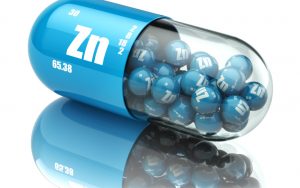- Home
- Editorial
- News
- Practice Guidelines
- Anesthesiology Guidelines
- Cancer Guidelines
- Cardiac Sciences Guidelines
- Critical Care Guidelines
- Dentistry Guidelines
- Dermatology Guidelines
- Diabetes and Endo Guidelines
- Diagnostics Guidelines
- ENT Guidelines
- Featured Practice Guidelines
- Gastroenterology Guidelines
- Geriatrics Guidelines
- Medicine Guidelines
- Nephrology Guidelines
- Neurosciences Guidelines
- Obs and Gynae Guidelines
- Ophthalmology Guidelines
- Orthopaedics Guidelines
- Paediatrics Guidelines
- Psychiatry Guidelines
- Pulmonology Guidelines
- Radiology Guidelines
- Surgery Guidelines
- Urology Guidelines
Folic acid, Zinc supplements don't improve semen quality and male fertility: JAMA

Dietary supplements marketed for male fertility commonly contain folic acid and zinc-based on limited prior evidence for improving semen quality. But there has been no large-scale trial has examined the efficacy of this therapy for improving semen quality or live birth.
The researchers conducted a randomized clinical trial to determine the effect of daily folic acid and zinc supplementation on semen quality and live birth. The findings of the trial do not support the use of folic acid and zinc supplementation by male partners in the treatment of infertility as the use of folic acid and zinc supplementation by male partners, compared with placebo, did not significantly improve semen quality or couples' live birth rates.
The Folic Acid and Zinc Supplementation Trial was a multicenter randomized clinical trial in which 2370 couples (men aged 18 years and women aged 18-45 years) planning infertility treatment were enrolled at 4 US reproductive endocrinology and infertility care study centres between June 2013 and December 2017. The last 6-month study visit for semen collection occurred during August 2018, with chart abstraction of live birth and pregnancy information completed during April 2019.
Men were block randomized by study centre and planned infertility treatment (in vitro fertilization, other treatment at a study site, and other treatment at an outside clinic) to receive either 5 mg of folic acid and 30 mg of elemental zinc (n = 1185) or placebo (n = 1185) daily for 6 months.
The co-primary outcomes were live birth (resulting from pregnancies occurring within 9 months of randomization) and semen quality parameters(sperm concentration, motility, morphology, volume, DNA fragmentation, and total motile sperm count) at 6 months after randomization.
The researchers found that among 2370 men who were randomized live birth was not significantly different between treatment groups (404 [34%] in the folic acid and zinc group and 416 [35%] in the placebo group; risk difference, −0.9% [95% CI, −4.7% to 2.8%]) (mean age, 33 years), 1773 (75%). Also, most of the semen quality parameters (sperm concentration, motility, morphology, volume, and total motile sperm count) were not significantly different between treatment groups at 6 months after randomization. A statistically significant increase in DNA fragmentation was observed with folic acid and zinc supplementation (mean of 29.7% for the percentage of DNA fragmentation in the folic acid and zinc group and 27.2% in the placebo group; mean difference, 2.4% [95% CI, 0.5% to 4.4%]). Gastrointestinal symptoms were more common with folic acid and zinc supplementation compared with placebo (abdominal discomfort or pain: 66 [6%] vs 40 [3%], respectively; nausea: 50 [4%] vs 24 [2%]; and vomiting: 32 [3%] vs 17 [1%]).
The researchers concluded that among a general population of couples seeking infertility treatment, the use of folic acid and zinc supplementation by male partners, compared with placebo, did not significantly improve semen quality or couples' live birth rates. These findings do not support the use of folic acid and zinc supplementation by male partners in the treatment of infertility. In this randomized clinical trial, supplementation with 5 mg of folic acid and 30 mg of zinc in men did not improve semen quality parameters or increase couples' live birthrates among patients seeking infertility treatment using IVF or other treatment modalities. Furthermore, this lack of efficacy was accompanied by some increased mild gastrointestinal adverse effects.
TRIAL REGISTRATION ClinicalTrials.gov Identifier: NCT01857310
For further reference log on to :
Effect of Folic Acid and Zinc Supplementation in Men on Semen Quality and Live Birth Among Couples Undergoing Infertility Treatment

Disclaimer: This site is primarily intended for healthcare professionals. Any content/information on this website does not replace the advice of medical and/or health professionals and should not be construed as medical/diagnostic advice/endorsement or prescription. Use of this site is subject to our terms of use, privacy policy, advertisement policy. © 2020 Minerva Medical Treatment Pvt Ltd